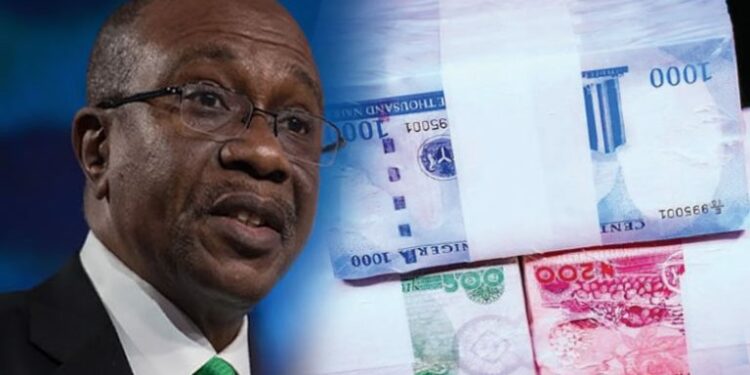Former acting Governor of the Central Bank of Nigeria,, Folashodun Shonubi, on Wednesday, testified before Justice Maryann Anenih at the Federal Capital Territory High Court in Maitama, Abuja, shedding light on the political dynamics that surrounded the controversial naira redesign exercise in 2022.
According to The PUNCH, Shonubi, who previously held the role of Deputy Governor of Operations at the CBN before briefly stepping in as acting Governor, was called to testify in the trial of former CBN Governor, Godwin Emefiele.
Taking the stand as a witness, Shonubi revealed that the process behind the naira redesign, carried out under Emefiele’s leadership, was riddled with political maneuvering and intrigue, especially in the lead-up to the 2023 general elections.
Responding to questions from Emefiele’s defense counsel, Olalekan Ojo (SAN), Shonubi recounted discussions within the CBN that hinted at deeper undercurrents surrounding the currency changes.
“The currency redesign of 2022 was the only one I was part of,” Shonubi explained. “When we had meetings with the defendant [Emefiele], he said there were politics and intrigues around the whole exercise.”
Despite this significant claim, Shonubi refrained from detailing the specifics of these alleged intrigues, leaving many questions unanswered.
Shonubi’s testimony also pointed to a critical discrepancy between the naira notes that were eventually released and the initial approval granted by former President Muhammadu Buhari.
He explained that although Emefiele presented a document containing Buhari’s signature during a Committee of Governors’ meeting, the final product differed from what had originally been approved by the President.
“The CBN, under Emefiele, produced something different from what former President Muhammadu Buhari approved,” Shonubi asserted, highlighting the deviation in the final design of the notes.
When pressed further, Shonubi admitted he had not seen any official protests or objections from the CBN’s Committee of Governors or its board regarding the President’s approval of the redesign.
He also clarified that he did not have full knowledge of all the exchanges between Emefiele and President Buhari during the currency redesign process. “Emefiele alone interacted with the President on the issue,” Shonubi said, indicating that the former CBN Governor had acted as the sole liaison with the President on this matter.
Shonubi also revealed that he had been questioned by the Economic and Financial Crimes Commission in connection with the naira redesign, during which he provided statements.
However, he noted that there was no direct confrontation between him and Emefiele during the EFCC’s investigation.
One of the standout moments of Shonubi’s testimony came when he discussed the procedural flaws in the redesign process.
He outlined the CBN’s standard protocols, which were bypassed during the 2022 exercise. Normally, the Currency Management Department of the CBN would recommend any currency redesign, after which the proposal would be sent to the Committee of Governors for review.
Upon the Committee’s approval, the CBN Board would then recommend the redesign to the President, following which an internal committee would be set up to oversee the implementation.
However, Shonubi stated that none of these steps were followed in 2022. Instead, Emefiele personally prepared and sent a memo to the President, bypassing the usual checks and balances.
“The memo presented to the President for the naira redesign was solely prepared by Emefiele and sent to the President without following the laid down procedures of the CBN,” Shonubi explained.
He also recalled that in early 2021, the Currency Department had initially recommended a redesign of the naira, but the proposal was dismissed on Emefiele’s orders.
“A paper was presented to me, but on the instruction of the Governor [CBN], it was stepped down. In 2022, we again presented the paper and were asked to hold on,” Shonubi noted.
The Deputy Governors were later summoned to a meeting in mid-October 2022, during which Emefiele informed them of the President’s approval. Shonubi recalled, “He showed us the memo, Mr. President’s signature, and the instructions on the last page.”
The case has been adjourned until October 9 for further proceedings.













